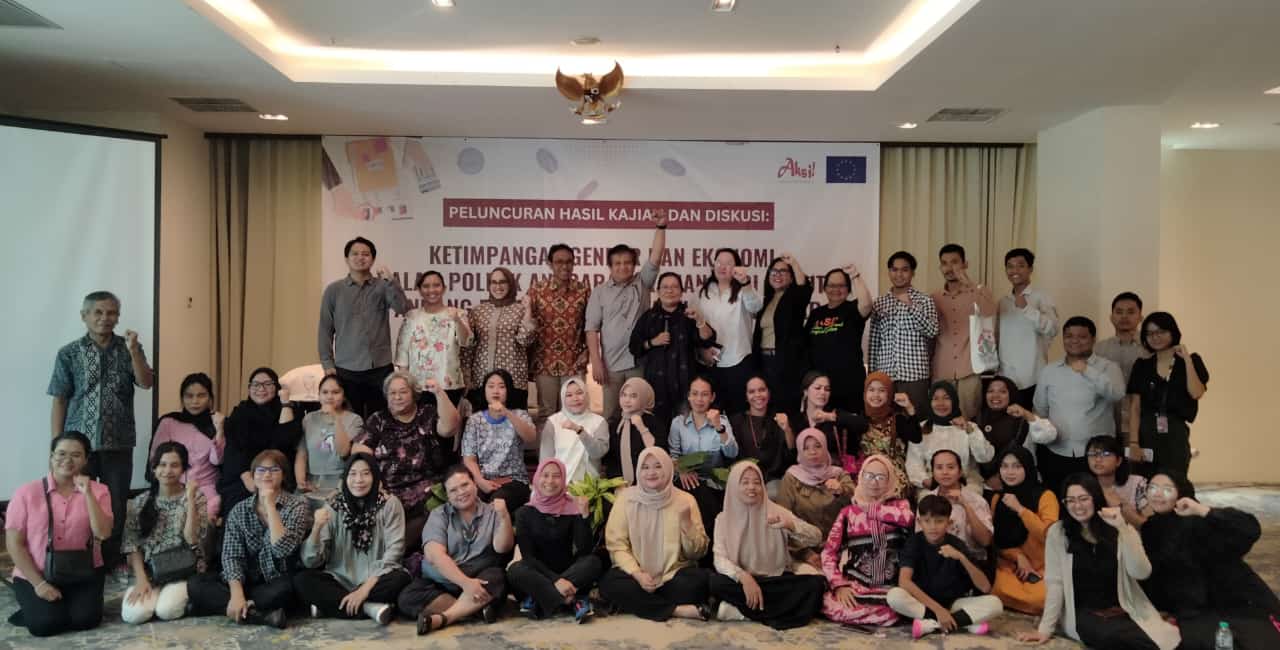Jakarta – Gender and economic inequality in Indonesia are widening alarmingly.
In a study titled “Gender and Economic Inequality in Budget Politics: A Taxation and Illicit Financial Flows Perspective,” Aksi! for gender, social, and ecological justice called on the government to take accountability for fiscal policies that disproportionately benefit a privileged few while disadvantaging women and other vulnerable groups. The findings were presented during an event at Swisbell Hotel, Pancoran, South Jakarta, on Thursday (November 7, 2024).
With this urgent crisis, the government must move beyond rhetoric and take concrete action. The event brought together 50 participants from NGOs, youth groups, and the media, underscoring the need for immediate intervention.
The discussion was opened by Titi Soentoro, Executive Director of Aksi!, who highlighted the growing feminization of poverty—the state’s ongoing failure to provide for women’s well-being, compounded by exploitation, discrimination, and violence.
A key driver of this inequality, she noted, is the lack of transparency in the tax system and widespread tax avoidance by major corporations.
During his presentation, Rio Ismail stated, “Our tax system is robbing future generations while placing an unfair burden on impoverished women working in the most vulnerable informal sectors.”
The study, based on various methodologies, including interviews with women’s groups, revealed a stark reality: taxes meant to fund public welfare are instead funneled into large business interests. Meanwhile, ordinary citizens, particularly those from lower-income backgrounds, shoulder the tax burden, while large corporations enjoy generous tax breaks and incentives.
Panelists provided further insights, with Jaya Darmawan from CELIOS criticizing the inequities in state budgeting, especially in education—a sector that should be free and a cornerstone for lifting women out of poverty.
Meliana Lumbantoruan from Publish What You Pay (PWYP) Indonesia emphasized the importance of public vigilance in holding leaders accountable for their promises, such as Prabowo-Gibran’s commitments to reduce taxes for MSMEs and lower income taxes.
Activists demanded a thorough review of tax policies that fail to prioritize the needs of ordinary citizens.
Uli Arta Siagian from WALHI condemned the government’s leniency in granting permits to extractive industries, which devastate communities and the environment.
Armayanti Sanusi from Solidaritas Perempuan pointed out that high tax rates without clear and equitable redistribution only deepen gender disparities. She further argued that the current tax system reinforces patriarchal norms embedded in legal frameworks.
“We’re keeping a close eye on the government’s fiscal policies, and our message is clear: stop giving corporations a free pass to exploit our nation’s wealth,” Titi Soentoro declared in her closing remarks.
She expressed hope that the study would compel the government to take action, reminding them that the public will not stay silent in demanding a fair tax system and transparent budget management.
Aksi! for gender, social, and ecological justice, alongside its partners, is committed to continuing this fight. This study is just the beginning of a larger campaign for gender and fiscal justice in Indonesia.
Source: Perisai Hukum
